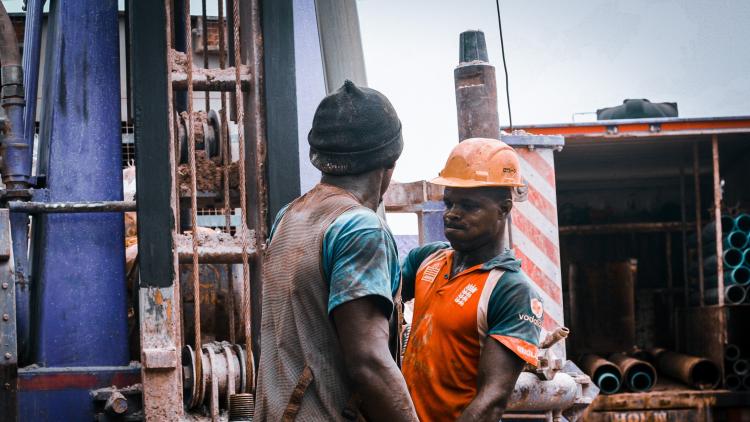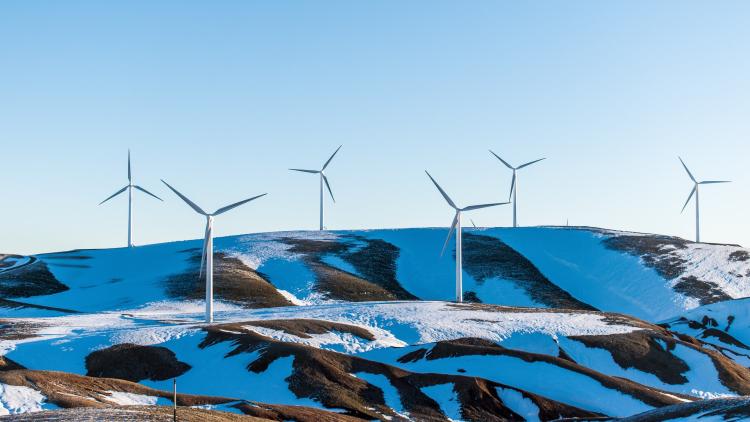Tipping points: could this be the climate movement we need?


A global movement against the climate crisis has finally emerged, and it could be one of the most positive breakthroughs for social justice in a generation.
For decades, the climate movements in the Global North never managed to sustain an engagement with popular consciousness, in part because they were not rooted in wider movements with more social weight – the anti-capitalist movements and the anti-war movements that came before and after them – and trade unions.
Climate change was seen as abstract, eliciting a sense of powerlessness, and a phenomenon so far into the future that it seemed impossible to mobilise sustained mass action around. That era is definitively over. The future is already here, and the climate crisis is beginning to take centre stage – and by necessity must be made more central to the agendas of radical movements around the world.
An extraordinary shift
In part, what concentrated people’s minds was the sobering IPCC report that came out at the end of 2018, put together by leading scientists who warned that even half a degree increase in global warming beyond 1.5C would likely have irreversible impacts, including the loss of ecosystems.
The report is unequivocal: climate change is caused by human activity – a deserved blow to the deniers – and action is needed now.
Of course, the report neglects any serious discussion of inequality and the social relations that underpin it, not least that the capitalist class that has no material interest in addressing the climate crisis, even as the rest of the world burns. Indeed, they even profit from it.
The IPCC report nevertheless marked an extraordinary shift. The planet now has about a decade before potential catastrophe, and CO2 emissions must decline by 45% by 2030, if we are to avoid the use of large-scale carbon dioxide removal technologies or other forms geoengineering and extreme mitigation. They must reach net zero by 2050.
The impact of political intervention
But what changed climate politics decisively were political interventions – the massive youth climate strikes, which saw over 1.9 million people across more than 2,300 different cities in 135 countries participate on 15 March alone, with similar numbers on 24 May. The school strikes were kicked off by the wonder that is Greta Thunberg, known for excoriating world leaders for inaction and empty words, and her unyielding determination to ensure that the global movement puts sufficient pressure on those in power to eliminate carbon emissions.
There was also Extinction Rebellion (XR), blocking and occupying major intersections around London for over two weeks in April, with over a thousand activists arrested. The focus on arrests inevitably limits the movement’s reach, but all of this moved Jeremy Corbyn to put forward a motion that made the UK parliament the first in the world to declare a climate emergency and plan for a Green Industrial Revolution.
In the few years prior to this, with the election of Trump and other right-wing parties adopting central policies around climate denial, combined with renewed efforts by the largest oil and gas companies following the Paris Agreement to control, delay or block climate policies, the consensus over the need to deal with climate change seemed to be waning. This was accompanied by climate change issues slipping down the news agenda.
Now the front pages of mainstream newspapers often report the latest on the climate crisis and the movements against it, and the headlines will continue as long as the movements create facts on the ground. How quickly mass movements and action on the streets can turn things around.
Last month the UN came out with another report, arguably even more ominous than the IPCC report, compiled by the Intergovernmental Science-Policy Platform on Biodiversity and Ecosystem Services (IPBES). The report draws from 15,000 scientific and governmental sources, plus indigenous and local knowledge, and is described as the most comprehensive study of life ever undertaken. The report stated that ‘human actions threaten more species with global extinction now than ever before. An average of around 25% of species… are threatened, suggesting that around 1 million species already face extinction, many within decades, unless action is taken…’. Biodiversity is in rapid decline, and the loss of diversity poses risks to food security. It calls for transformative change.
What does this transformative change look like? The report acknowledges that values need to change: ‘a fundamental, system-wide reorganization across technological, economic and social factors, including paradigms, goals and values’. It hints that unsustainable practices are the result of globalisation, suggests ‘steering away from the current limited paradigm of economic growth’ and notes the need for ‘decoupling the idea of a good and meaningful life from ever-increasing material consumption’. This might suggest more austerity for the masses in the name of saving the planet, or a greater reliance on green technology – which only the West can afford, at the expense of poorer countries – or reforms that simply export carbon-intensive industries. But talk of even questioning economic growth is remarkable for a UN report, given its historic role in promoting market mechanisms.
Crisis fuelled by Capitalism
Because it was viewing nature in market terms that got us here in the first place. Capitalist expansion, built on the extraction and burning of fossil fuels, first in Britain and then the rest of the world, caused the climate crisis.
This spatial fix – finding new frontiers for investment and productive outlets for overaccumulation through the movement of capital – is boundless, so long as there exists a class of capitalists that rebuilds and reconquers lost capital following a crisis. The driver of imperialism is control over oil, gas, mines, forests and other natural resources for profit, and the control over populations that have those resources.
The climate question is about climate justice, about confronting racism, sexism, poverty and all the other questions stemming from the way we organise our economy and society.
It’s perfectly possible for a social democratic government with a Green New Deal to begin taking necessary measures in the here and now, even apart from carbon trading, carbon futures and prices on carbon emissions. Among a whole host of initiatives around welfare, it would mean nationalising industry on a grand scale so that heating and electricity could be powered by renewables.
These industries would need to be treated as public goods, subsidised and invested in by government. Similarly, public transport would require huge investments in railways and electric buses. It would also mean a programme of green jobs, where everyone would be looked after, every job would be green, and everyone who loses their job in a polluting industry would get another job that is better.
While Green Keynesianism will ultimately be limited as long as one class continues to benefit from pillaging the earth and the economic growth this brings, it’s imperative that we start down that road. Once class conflict surfaces, we also a strategy that can chart a way beyond mere reforms. This is primarily a political question and requires working-class agency. Strikes are one of the most powerful weapons of social change and mass movements will be necessary whatever happens. They have to be made democratic, inclusive and focused. An existential crisis means strategising to confront those in power, and how we take power from them.


